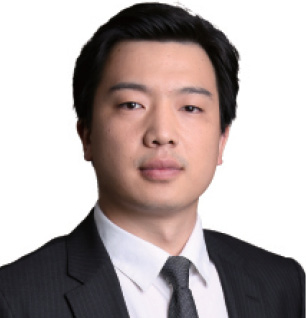It is not uncommon that trademark infringement and unfair competition lawsuits involve brand imitation, a phenomenon where the infringer registers another person’s registered trademark with a certain level of popularity as its own business name, and uses the business name in a manner intended to mislead or confuse consumers.
Generally speaking, a later business name infringes upon a prior trademark under any of the following circumstances: (1) the words highlighted in the business name infringe upon another person’s proprietary rights to a registered trademark; or (2) use of the business name, despite being proper, constitutes an unfair competition activity vis-à-vis the prior trademark holder. In this article, the author discusses judicial practices relating to the second circumstance by reviewing a trademark infringement
case in which Sanyou was involved as
the claimant.

SHI YAKAI
三友知识产权代理有限公司
律师
Attorney-at-law
Sanyou Intellectual
Property Agency
Beijing Sanyou Intellectual Property Agency, the claimant, was the first privately owned patent agency authorized by the State Intellectual Property Office of China (SIPO). Since 1997, the claimant has registered a series of trademarks, including “三友” and “Sanyou” in connection with categories 42 and 45 of intellectual property related services.
Given the claimant’s proven track record as an industry leader in the intellectual property service sector since its establishment, its registered trademarks benefit from well-established popularity and goodwill in the sector.
The respondent, Dongguan Sanyou Intellectual Property Service, was incorporated in 2013 with the Chinese characters “三友” as its business name. It uses “Sanyou Intellectual Property” and its Chinese equivalent as well as logos incorporating “Sanyou” on its website. In August 2016, Beijing Sanyou filed an action against Dongguan Sanyou alleging trademark infringement and unfair competition.
In December 2016, the court issued a first-instance judgment (effective), finding that the activities of the respondent constituted trademark infringement and unfair competition for the claimant, and ordering the respondent to promptly stop using any service marks identical or similar to the claimant’s registered trademarks in its business activities, and to change its business name within one month from the effective date of the judgment.
Determining the nature of the respondent’s activities. With regard to the respondent’s registration of a business name with terms identical or similar to the respondent’s registered trademarks and the subsequent use of the business name, the court argued that: (1) the claimant enjoyed prior rights, because it completed registration procedures for its trademarks, including “三友” and “Sanyou”, earlier than the respondent did for its business name; (2) although the respondent’s business name was duly registered, the respondent should have exercised due care to avoid running into prior rights of any other person, and equally important, avoid infringing upon any other person’s proprietary rights to any registered trademark when filing the business name registration application; and (3) the claimant therefore has the right to sue the respondent who uses terms identical with the claimant’s registered trademarks as its business name, even if the business name was registered with approval of the competent authority for industry and commerce.
Since the claimant and the respondent are from the same industry and provide the same categories of services, they deal with groups of people who are interrelated. The defendant’s use of the claimant’s registered trademarks as its business name, intended to profit from the claimant’s goodwill based on the trademarks, has constituted unfair competition due to violation of the principle of good faith and recognized business ethics.
Application of laws. Having experienced three rounds of revision by 2013, the PRC Trademark Law in effect was finalized with an additional provision intended to prevent unfair competition activities, known as article 58, which states: “The Anti-Unfair Competition Law of the People’s Republic of China must apply where use of another person’s registered trademark or unregistered well-known trademark, as or as part of a business name to mislead the public, constitutes an unfair competition activity.”
For this case, the court applied article 58 of the Trademark Law and article 2 of the Anti-Unfair Competition Law, then in effect, and found that the respondent’s activities involved unfair competition. However, as the 2017 amendments of the Anti-Unfair Competition Law took effect on 1 January 2018, the previous article 2 is superseded by paragraph 1, article 6 of the Anti-Unfair Competition Law now in effect. In other words, these unfair competition activities are now subject to article 58 of the Trademark Law and paragraph 1, article 6 of the Anti-Unfair Competition Law.
Considerations. The court looked primarily at the following factors when determining whether the activities involved in this case constituted unfair competition activities: (1) whether the terms incorporated in the business name were identical or similar to the prior trademarks; (2) whether the prior trademarks were well recognized in the market; (3) whether the claimant and respondent dealt in goods or services that were similar; (4) the degree of attention from the relevant public; (5) whether use of the business name, despite being proper, may cause confusion about the source of goods or services among consumers; and (6) other factors such as bad faith, historical reasons, market landscape, and market competition.
Enforcement of the judgment. In this case, the court held that the respondent’s activities constituted unfair competition and, as judges for similar cases do, ordered the respondent to stop using the business name and change it by a specified deadline. However, a review of similar cases the authors have represented finds that if respondents fail to fulfil the effective judgments by specified deadlines, usually stopping the respondents from using or requesting them to change their business names becomes a big challenge for subsequent enforcement proceedings. Aimed at tackling this problem, article 18 of the 2017 Anti-Unfair Competition Law is drafted with further details to provide business name registrars with legal basis and specific guidelines that they may cite to assist in enforcing court decisions.
Shi Yakai is an attorney-at-law at Sanyou Intellectual Property Agency
北京市西城区金融街35号
国际企业大厦A座16层 邮编: 100033
16/F, Block A, Corporate Square
No.35 Jinrong Street, Beijing 100033, China
电话 Tel: +86 10 8809 1921 / 8809 1922
传真 Fax: +86 10 8809 1920
电子信箱 E-mail:
sanyou@sanyouip.com
www.sanyouip.com






















